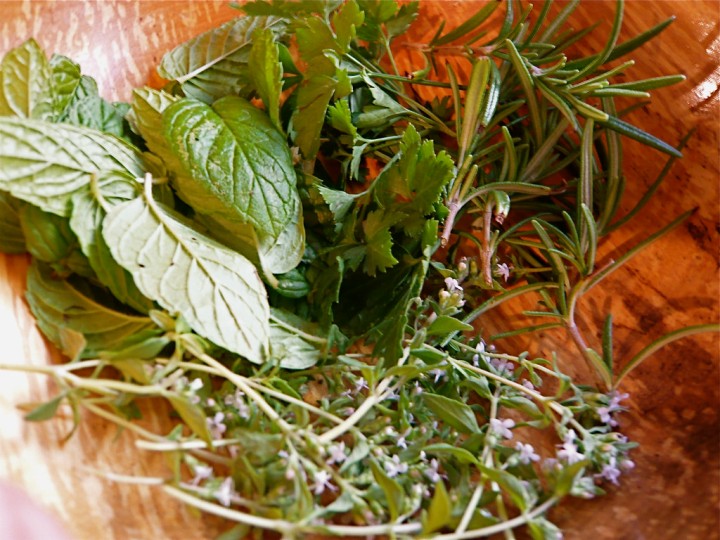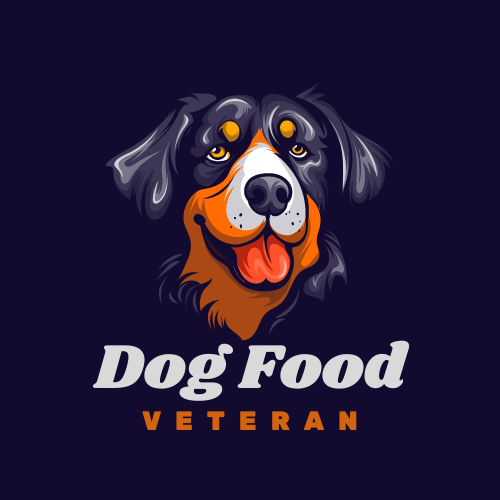
Well, that depends on the herb. I believe the real question should be “What herbs can my dogs eat?”
Knowing the answer to this is very helpful because certain herbs offer calming effects, boost immunity, and help with digestion. Additionally, you can use them as natural flavors when preparing treats or meals for your dogs.
But then, not all herbs are good for your pets and, even for those that are, knowing the ideal quantity is key.
Let’s dig deeper by starting with what herbs are toxic to your pets.
What Herbs Are Toxic to Dogs?
Nutmeg: This aromatic spice is good for humans, but fatal to dogs. It can induce seizures, tremors, and central nervous system issues if your dogs consume them in large quantities.
Garlic and Onions: These veggies can damage your dog’s red blood cells and make them anemic.
Rhubarb Leaves: Contains oxalates which can cause kidney damage and tremors in your dogs.
Elderberry: While the berries themselves are safe in small amounts, the stems, leaves, and roots contain a cyanogenic glycoside that can cause vomiting and diarrhea in your pets.
This isn’t an exhaustive list because there are so many other herbs and plants that are harmful to dogs. With that being said, if you suspect that your dog has ingested a toxic herb, please seek help immediately. Otherwise, your pet may suffer from severe and even life-threatening reactions.
How to treat herb poisoning in dogs
If you suspect that your dog has ingested a toxic herb, here are the steps to take:
- Contact your veterinarian or the ASPCA Animal Poison Control Center immediately: While you do this, be ready to provide details about the herb your pet ingested, the amount it consumed, and the symptoms they’re exhibiting.
- Follow their instructions: Your vet may advise you to induce vomiting or bring your dog in for treatment, depending on how severe the situation is.
- Monitor your dog closely: Watch for symptoms such as vomiting, diarrhea, lethargy, or other concerning signs, and report any changes to your veterinarian.
- Seek emergency care if necessary: If your dog’s condition gets worse, take them to the nearest emergency veterinary clinic for immediate medical attention.
How to prevent herb poisoning in dogs
If you want to prevent herb poisoning in your dog, here are some tips to keep in mind:
- Watch them closely: Always supervise your dog when they are around plants or herbs, especially in unfamiliar environments or gardens.
- Restrict access: If you have toxic herbs or plants in your garden, I strongly advise you to restrict your dog’s access to those areas or consider removing them altogether. We can’t have your pooch sniffing and munching around.
- Educate yourself on the herbs to avoid: Familiarize yourself with common toxic herbs for dogs and how they look to identify potential hazards.
- Store herbs safely: Keep your herbs or plants out of reach from your pets so their curiosity doesn’t get the better of them, especially if you are unsure of their toxicity.
- Install fences: Use fences to create barriers around areas with potentially toxic plants or herbs. This way, your dogs won’t be able to access these areas in your absence.
What are the non-toxic herbs for dogs?
While there are some nasty herbs, some are good for your dogs as long as they consume it in moderation. Here’s a list of some non-toxic herbs for your pets:
- Parsley
- Basil
- Dill
- Rosemary
- Peppermint
But don’t take my word for it because your dog may be sensitive to any of these options I’ve listed. Always consult your vet before introducing any new herbs to your dog’s diet.
Want to Make Dog Treats Using Herbs and Spices?
If you want to make treats for your pet with herbs and spices that are safe for them, there are tons of recipes and tips online to help you with that. One notable example is “Homemade Dog Treats” by Serena Faber Nelson.
Final notes
Herbs can be a great addition to your dog’s diet, but you have to be aware of the risks they come with. To play it safe, always consult your vet before introducing new herbs or supplements to their meals. And remember some herbs are not just toxic, but life-threatening to your pooch if they ingest it. This is all the motivation you need to educate yourself on the safe and toxic herbs for them.
Read More: Can Dogs Eat Eggplant?

